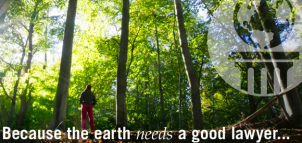
By Marta Conde.
In Canada and the US, where environmental laws are quite stringent, many battles to stop mining and dumping of waste take place in court. Two recent examples show how critical the stakes are and how crucial the alliance between environmental lobby groups and lawyers is.
On March 20, a judge from Phoenix denied the motion to overturn a uranium-mining ban near the Grand Canyon, in the US. The National Mining Association, Nuclear Energy Institute and Northwest Mining Association, among others, had challenged a 20-year moratorium that had been adopted in January 2012 by the Obama administration. The aim of the moratorium was “to protect the canyon’s watersheds by prohibiting new mining claims and any development on old claims that lacked ‘valid existing rights.’” Ted Zukoski, an attorney with the environmental law firm Earthjustice that won the case expressed his satisfaction: “It’s a great day for the Grand Canyon, and for rivers, wildlife, and communities across the West,” Without their intervention, there would be no limit to the scope of the mining industry.
Meanwhile, in Canada, a legal battle to keep pristine bodies of water from being used as waste dumps is ongoing. The group ‘Sandy Pond Alliance to Protect Canadian Waters’ launched a court challenge in 2010 to protect the Sandy Pond, near Long Harbour, Canada. Mining giant Vale has been investing to turn this pond into a tailings impoundment area (TIA) of their adjacent nickel-processing facility. The aim of the Alliance is larger; they are in fact challenging a ‘loophole’ in the country’s Fisheries Act. Schedule 2. while introduced by the liberal government to account for the lakes and rivers that had historically been used for mining waste, it is now used by the Conservative government to open new pristine lakes and rivers to mining waste. Environmentalists, Vale and Canada’s federal government are awaiting the verdict from a Newfoundland judge. The ruling will affect mining operations across the country.
These examples illustrate that fighting for environmental justice in the courts is key to defend the environment. As so many cases throughout the world illustrate, only the law is there to protect the environment from being ransacked. It is up to us to use it.
More information on
http://nhonews.com/main.asp?SectionID=1&SubsectionID=1&ArticleID=15331

The project ENVJUSTICE has received funding from the European Research Council (ERC) under the European Union’s Horizon 2020 research and innovation programme (grant agreement No. 695446)